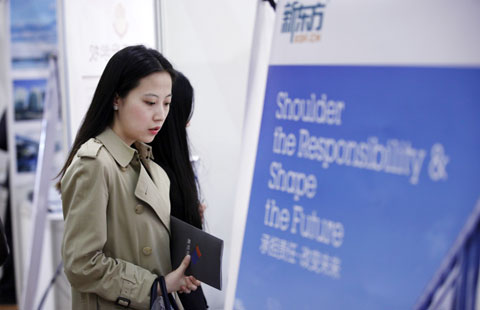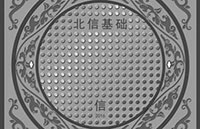From the streets to the Great Hall of the People
By Tang Yue (China Daily) Updated: 2012-12-20 09:02Carrying the torch
The son of a peasant family, Ren worked on a farm after graduating from junior high school. However, when the Yiqing branch of Beijing Environment Sanitation Engineering Group Co arrived in Pingquan to recruit cleaners, he quickly signed up to "earn more to help the family and to see more of the world".
For the past 16 years, he has risen at 5 am every working day to drive a refuse-collection vehicle, transporting garbage from Line 1 of the capital's subway system, a jail and several residential communities, to the waste center.
Over the years, his hard work and dedication have won him many honors, including that of being a torchbearer at the 2008 Beijing Olympic Games.
While it's easy for the public to understand the role of a torchbearer, the requirements and duties of a delegate to the congress were simply beyond the comprehension of many of his co-workers and the folks back home.
All his mother and daughter knew was "it's good to be on TV and in the newspapers", while his wife, a housekeeper at a local hotel, understood that it was "a very important meeting" and found it "incredible" that her husband would be attending.
"When I was first elected, my colleagues kept asking me, 'Xiaoyun, you must be very rich now that you're a delegate. How much are you paid?" said Ren, flashing a wry smile.
"In my hometown, relatives, friends and schoolmates, some of whom I hardly recognized, all said, 'You are a big official now, so don't forget us in the future'."
When Ren explained that delegates are not paid officials and that he was still a cleaner in Beijing, not everyone believed him.
"People came to me in the hope of solving all kinds of problems, even neighborhood disputes. I tried to explain my role to them as patiently as possible or they would have considered me very arrogant," he said.
In 2008, Hu Xiaoyan, who works in a ceramics plant in Foshan, Guangdong province, made history when she and two others were elected as the first migrant worker delegates, at the 11th National People's Congress.
Making history
To canvass opinions and better represent China's 200 million-plus migrant workers, Hu allowed a newspaper to publish details of her mobile phone number and instant-messaging account.
However, she was inundated with messages and calls; she received more than 1,000 messages and calls every day, some at midnight. The battery in her phone ran down several times a day and her bill shot up to 1,400 yuan ($225) in one month, almost half her monthly salary. At the peak, she had 2,088 unread e-mails.
- China backs WHO in implementation of health-related goals: Xi
- China, US vow to boost trust
- Ex-military leader Guo given life in bribery case
- Ministries discuss retirement age, food security
- 'Flying objects' restricted for G20 Summit
- Jobs growing, but applicants are lagging
- Top Chinese economic fugitive to return
- Taiwan investigators detect 'gasoline reaction'
- Government moves to tackle e-waste pollution
- Xi calls for heightened supervision of reform










